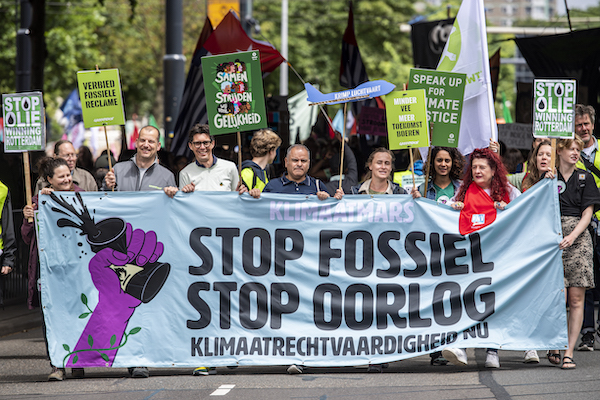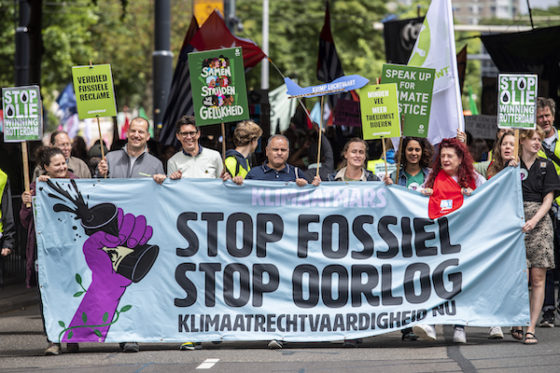EU cracks down on ‘greenwashing’, promotes remediation


A climate justice rally in Amsterdam last summer.Photo: Martin van Dijl, Greenpeace
This week, the European Commission decided to crack down on misleading definitions and proposed new rules to help consumers better understand how “sustainable” the products and services they buy are.
A “recycled plastic” t-shirt, “ocean-friendly” sunscreen, or “carbon-compensated” travel ticket will appeal to those who want to make a difference on the planet. However, they are all examples of greenwashing because they give vague and often misleading information to consumers.
Just last year, the Dutch Consumer Market Authority (ACM) accused Decathlon and H&M of using terms like “ecodesign” and “conscious” to describe their products without specifying their meaning.
After that, the two companies came to an agreement. better inform consumers We will donate €400,000 and €500,000 respectively as compensation to the sustainable cause for baseless claims.
Environmental groups have also filed a lawsuit against KLM, alleging that ads promoting the airline’s carbon offset plans are misleading.
Similar practices are widespread in Europe. A 2020 study by the European Commission found that more than half (53%) of environmental claims used to advertise products and services in the EU were ‘vague, misleading or unsubstantiated’,40 I found % to be completely unsubstantiated.
suggestion
The Commission’s proposal calls for green claims to be backed by scientific evidence and checked against minimum standards by an independent body. This will issue a certificate of compliance valid throughout the European Union.
National authorities should set up verification processes, publish results, and fine companies that mislead customers. Consumer organizations can also take legal action against them.
“We are bombarded with information. There are 230 different ecolabels on the EU market…” Environment Commissioner Virginijus Sinkevicius offered a proposal.
“We are committed to helping consumers feel more confident about their choices and ensuring companies are making a real effort to reduce their impact on nature, resource use, climate emissions or pollution. I want to be rewarded for it.”
A spokesperson for ACM, which issued guidelines on green claims in 2020, told Dutch News: no. ‘
carbon neutral
However, despite pressure from consumer and environmental groups, the European Commission has not banned the “carbon neutral” label. It also allowed the use of offsets in green claims. This means that the company buys carbon credits for other environmental projects as compensation in exchange for reducing his CO2 emissions.
Under the new rules, businesses will have to specify which part of their bill depends on these credits. However, consumer groups say this is also a greenwashing tactic that confuses consumers.
The ACM survey found that most respondents did not understand the term “carbon neutral” and half either did not know or barely felt the difference between carbon offsetting and carbon reduction when buying a plane ticket. was not
“Right to Repair”
The commission is also proposing a new measure requiring companies to repair rather than replace products within two years of purchase (if it’s cheaper to do so).
Consumers also have the right to ask manufacturers to repair products that are technically repairable under EU law, such as televisions, washing machines, refrigerators, dishwashers and mobile phones, for a period of 5 to 10 years. To do.
It will take some time for these measures to become effective as the European Parliament and Council (the EU government) still have to approve them.
A spokesperson for consumer group Consumentenbond told Dutch News that the proposal was primarily about “improving the likelihood of legal post-warranty repairs”. However, for products with an expected lifespan of more than two years, “the statutory warranty must be significantly extended.”
For phones and IT devices, software updates should be guaranteed for the life of the product, Consumentenbond added.
https://www.dutchnews.nl/news/2023/03/eu-to-crack-down-on-greenwashing-and-promote-repairs/ EU cracks down on ‘greenwashing’, promotes remediation





